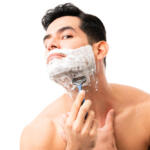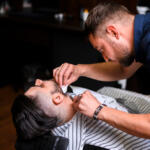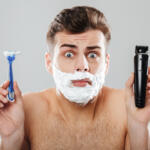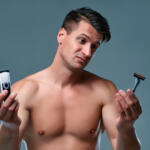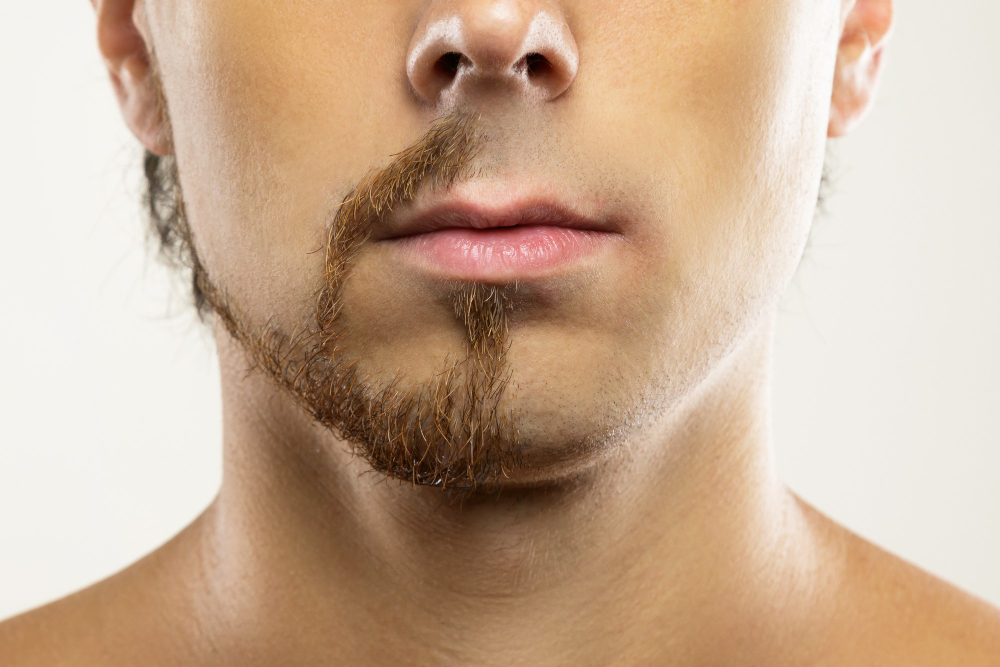
Hello, gentlemen! Today, we explore a daily ritual that each man confronts every morning in front of the mirror: the decision to shave or not.
Table Of Contents
−- Understanding the Psychology Behind Shaving
- Self-Expression and Personal Identity: The Tale Your Facial Hair Tells
- Job and Societal Norms: The Silent Rules of Facial Hair
- The Impact of Iconic Figures: Following Celebrity Leads
- How Your Facial Hair Shapes Perceptions
- The Bearded View: Signs of Leadership and Wisdom
- The Hairless Perspective: Approachable and Young
- Making Informed Choices: Understanding Your Beard Preferences
- Adapting to Shifting Tides
- Practical Concerns: Comfort Matters
- The Joy of Selection: Celebrating Your Unique Style
What might seem like a straightforward grooming decision actually holds deeper implications about our personalities, societal views, and self-expression. As a seasoned psychologist with a distinct interest in men’s grooming, I’m eager to present my findings on this captivating subject.
Understanding the Psychology Behind Shaving
For numerous men, shaving transcends being just another morning activity. It acts as a significant part of their self-identity, a way to express themselves, and a nod to societal standards and anticipations.
Self-Expression and Personal Identity: The Tale Your Facial Hair Tells
Your decision to sport a beard or maintain a hairless face becomes a marker of your identity. Opting for a sleek stubble, a full-fledged beard, or a fresh, hairless visage each offers a glimpse into your personality. Through my extensive professional journey, I’ve observed how grooming directly influences one’s self-esteem and self-view.
Job and Societal Norms: The Silent Rules of Facial Hair
Certain job sectors and cultural environments have their own sets of beliefs about facial hair. For instance, individuals in the medical field often lean towards a hairless appearance for hygienic reasons. Abiding by these standards speaks volumes about one’s respect and alignment with communal values.
The Impact of Iconic Figures: Following Celebrity Leads
Whenever a renowned actor dons a new beard look, barbers everywhere anticipate a spike in demand for that style. Clearly, men frequently look up to public figures for grooming inspiration, underscoring the profound psychological connections between shaving and self-expression.
How Your Facial Hair Shapes Perceptions
Having discussed the reasons behind grooming choices, it’s essential to consider the consequences of these choices in societal perceptions.
The Bearded View: Signs of Leadership and Wisdom
Research Alert: Research from the Journal of Evolutionary Biology indicates that women often find men with significant stubble most appealing, with those having full beards seen as healthier and more likely to be nurturing parents. It’s fascinating how facial hair can shift public perceptions, isn’t it?
The Hairless Perspective: Approachable and Young
Research Alert: Data from Social Psychological and Personality Science shows that men without facial hair tend to be perceived as more friendly and trustworthy. Such views might have spurred the trend of hairless faces in the business sector.
Making Informed Choices: Understanding Your Beard Preferences
The decision between having a beard and a hairless face requires a mix of personal preference, societal norms, job obligations, and self-identity.
Adapting to Shifting Tides
From the 70s’ love for mustaches, the 90s’ penchant for hairless faces, to the 2010s’ beard resurgence, societal opinions about facial hair never stand still. As a keen observer and professional, I advise adapting to these trends but not at the expense of personal comfort or self-worth.
Practical Concerns: Comfort Matters
To conclude, we must remember the comfort factor. While some men might be deterred by the itchiness of growing a beard, others might appreciate its coziness and fashion quotient.
The Joy of Selection: Celebrating Your Unique Style
Choosing to have a beard or go without is a profoundly individual decision. Drawing from my expertise, I’d suggest opting for what makes you feel most at ease and sure of yourself.
Beards can regrow, and hairless faces can always sport a new look. Feel free to try different styles, and above all, relish the self-awareness that grooming imparts. Your grooming choice defines a part of you, so cherish it, and wear it with confidence.

Jay Kang
Just because i'm asian does not mean I don't need shaving. I always wanted to grow a beard when I was young, now I need to shave because hair growth for me is a problem. I'm going through what every man will and has gone through before.

